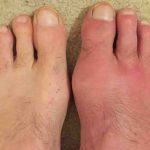Many people suffer from constipation, diarrhea, and stomach cramp. These digestive tract issues are usually temporary and can be alleviated with over-the-counter medications. If you regularly have these uncomfortable and painful digestive tract issues, then you may have Crohn’s disease. There is no cure for Crohn’s disease, but it can be managed through proper treatments.
Around 700,000 Americans suffer from Crohn’s disease. This disease can cause inflammation in any part of the gastrointestinal system from the mouth to the anus, but it typically affects the small intestine and colon. There is no known cause, but heredity and immune system problems are two key risk factors. Other risk factors include:
• Age – typically develops if you are under 30
• Ethnicity – typically develops in whites of eastern European or Jewish ancestry
• Cigarette smoking – causes Crohn’s disease and can increase its severity
• Anti-inflammatory medications – increases the severity of this disease
• Environment – urban living and having a diet that is high in fat or refined foods increases the chance of developing the disease
Tap below to continue with The Symptoms of Crohn’s Disease…
More from Things Health
-
Lyme Disease Symptoms
Experts are suggesting that 2017 will be a bad year for ticks. Lyme disorder is propagated by deer ticks and is the result of a…
-
Symptoms Of An Ulcer
A peptic ulcer is an open sore in the top digestion tract. Both primary kinds of peptic ulcers, a gastric ulcer, which forms in the…
-
Symptoms Of Prostate Cancer
Cancer of the prostate affects more than 200,000 men each year in the US alone. Worldwide statistics for prostate cancer continue to grow tremendously, and…
-
Understanding Crohn's Disease
Crohn's Disease is an Inflammatory Bowel Disease commonly referred to as IBD. Inflammatory Bowel Disease consists of several disorders, the primary two are Crohn's Disease…
-
Symptoms of Gout
Gout is a form of inflammatory arthritis characterized by recurrent attacks of a red, tender, hot, and swollen joint. Pain typically comes on rapidly in…






